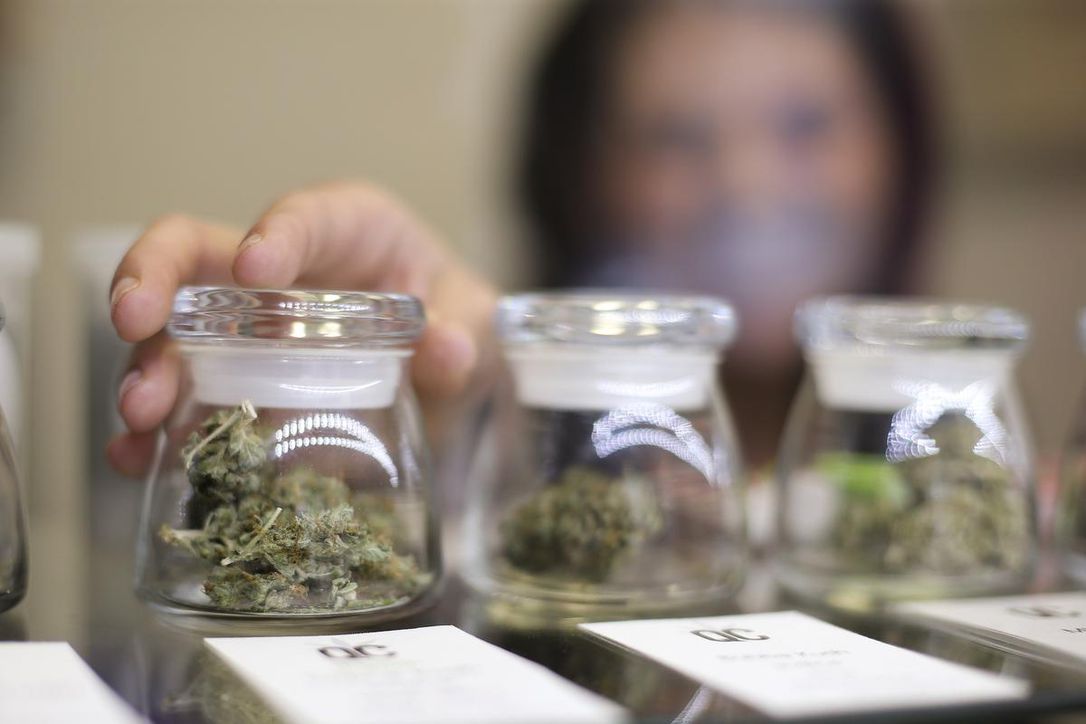You are here
Home 🌿 Regional 🌿 North America 🌿 Canada 🌿 Privately run cannabis stores are best way to curb black market, Ontario Tories say 🌿Privately run cannabis stores are best way to curb black market, Ontario Tories say

Private stores are slated to begin opening by April next year, although the government has not decided on a number of outlets or set criteria that retailers must meet to be granted licences. Those details will be hammered out in consultations over the coming months.
“Twenty per cent of the users consume 80 per cent of the cannabis, and when they were polled by the previous government, we learned that 70 per cent preferred a private retail sector,” Fedeli claimed.
He did not provide other details from the public poll, nor answer the Star’s questions about its methodology.
Meanwhile, studies show that, whatever heavy users prefer, Canadians are largely split on how they would prefer to buy their pot.
A study by consulting firm Deloitte LLP conducted earlier this year found a 50-50 split between government-run or licensed private retail stores as the preferred place of purchase.
A March poll of 4,880 respondents by Vividata, meanwhile, found more Canadians approve of government-run dispensaries than other options.
“There’s certainly an interest by consumers overall to have an amount of government control throughout the process,” said Michele Sexsmith of Environics.
Fedeli and Attorney General Caroline Mulroney tout the private retail channel, which will be supplied by the government-run Ontario Cannabis Store as the wholesaler, as the best way to protect the public — particularly those under 19 who will not be able to legally purchase marijuana.
The 32-page Deloitte study also concluded that current cannabis users are more likely to keep buying illegally, but the “right mix” of product quality, price and safety could influence their choice.
“Retailing fundamentals such as convenience, customer experience, product choice and product and location safety matter,” the Deloitte report said.
The study determined that price, in particular, matters. The average illegal price for cannabis is $8.33 per gram in Ontario and the survey indicated a willingness to pay up to a dollar more for legally sold weed.
One industry source told the Star that a retail price of about $10 a gram — previously mentioned by former Liberal finance minister Charles Sousa — is the “sweet spot” for keeping the illegal market in check.
Given experience in other jurisdictions, an open question is what will happen to legal prices as supply increases after prohibition is lifted in two months.
The Washington Post last year noted marijuana prices fell in states where it is legal, with a drop of 24.5 per cent in Colorado.
On the costs of scrapping the previous Liberal government’s plan for government-owned pot stores across the province, Fedeli said there will be “considerable savings” in abandoning that strategy but could not supply a dollar figure.
So far, the government, through its Ontario Cannabis Store organization, has spent $6.7 million preparing for legalized marijuana and “much of it will be repurposed into the new retail stores that we’re planning,” Fedeli said.
Lost money, for such items as leases and startup costs for the first four government outlets that were slated to open soon in Toronto, Guelph, Kingston and Thunder Bay, will be “quite a bit smaller than that,” he added.
Two of those stores, in Guelph and Kingston, were set open Oct. 17.
“Current leases will be honoured and we are reassessing the plans for those locations,” Ontario Cannabis Store said in a statement.
“The OCS has prioritized being in an advanced state of readiness for cannabis legalization while remaining flexible to support government direction, so most costs related to stores were not incurred. The costs associated with the shift in the OCS mandate are minimal and efforts will be made to repurpose and reassign any investments made to date.”
Fedeli said about 50 staff have been hired so far.
The OCS said “very few” were earmarked for specific stores and most have been doing work to prepare for the Oct. 17 legalization date.
“Given their experience, OCS is actively working to reassign (staff) to new roles where their social responsibility and product knowledge training will be useful elsewhere in the organization, such as in online support,” the statement said.
420 Intel is Your Source for Marijuana News
420 Intel Canada is your leading news source for the Canadian cannabis industry. Get the latest updates on Canadian cannabis stocks and developments on how Canada continues to be a major player in the worldwide recreational and medical cannabis industry.
420 Intel Canada is the Canadian Industry news outlet that will keep you updated on how these Canadian developments in recreational and medical marijuana will impact the country and the world. Our commitment is to bring you the most important cannabis news stories from across Canada every day of the week.
Marijuana industry news is a constant endeavor with new developments each day. For marijuana news across the True North, 420 Intel Canada promises to bring you quality, Canadian, cannabis industry news.
You can get 420 Intel news delivered directly to your inbox by signing up for our daily marijuana news, ensuring you’re always kept up to date on the ever-changing cannabis industry. To stay even better informed about marijuana legalization news follow us on Twitter, Facebook and LinkedIn.




